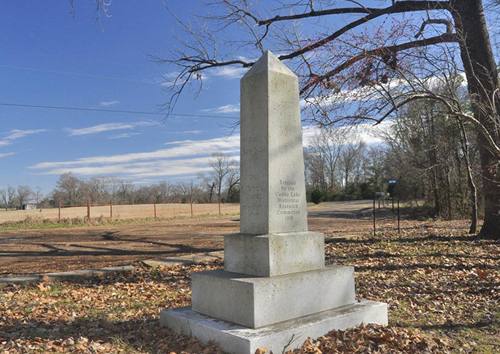Robert and Harriet Potter, East Texas Saga. (original) (raw)
"There ain't no good in men" claims a line from a song titled "Frankie and Johnny." It might as well have been titled "Harriet and Robert" for real life early East Texans whose saga has been captured so well in a novel by Elithe Hamilton Kirkland titled Love Is A Wild Assault. Here are some basic facts:
| Robert Potter was born in North Carolina in 1799. He joined the US Navy in 1815, resigned in 1821 and became a lawyer, and in 1826 he was married to Isabel A. Taylor and elected to Congress. Potter's first political career ended in 1831 when he resigned from Congress after he had castrated his wife's cousin and another man he believed had become too familiar with Isabel. The incident received sufficient celebrity that the term "Potterized" became euphony for such an act. | | | -------------------------------------------------------------------------------------------------------------------------------------------------------------------------------------------------------------------------------------------------------------------------------------------------------------------------------------------------------------------------------------------------------------------------------------------------------------------------------------------- | |
Potter migrated to Texas in 1835 and joined Texas revolutionaries. He served as a delegate from Nacogdoches to the Consultations in 1835 and 1836 and signed the Texas Declaration of Independence. Potter fought at San Jacinto and afterwards won appointment as secretary of the Texas Navy. Later, he was a member of the Texas Congress.
Harriet Moore of New Orleans married Solomon Page and they moved to Texas, where Page deserted her to enlist in the revolutionary army. She managed to survive, even during the Runaway Scrape, with assistance from Potter. Harriet turned down Page's offer of reconciliation and decided to return to New Orleans, then move in with relatives in Kentucky. Potter offered his help, but instead took her to property he owned in present�day Harrison County. Potter convinced Harriet that her marriage to Page was invalid in Texas because they had not been married by a priest, and so they were betrothed by bond in September 1836, lived together at Potter's Point on Caddo Lake, and produced two children.
Potter served in the Texas Congress, which meant that he spent much time in Austin. After he was assassinated during the Regulator-Moderator War, Harriet discovered while probating his will that he had left their homestead to Sophia Mayfield of Austin. He left other property to Harriet, whom he identified as "Mrs. Page."
Harriet continued to live on the homestead and remarried in 1842 to Charles Ames. Mayfield never tried to take possession of the homestead, but following her death in 1852 and acquisition of the property by others, the Ames filed suit to have Potter's will set aside so Harriet could have unquestioned ownership of their homestead. But Justice O.M. Roberts ruled the marriage of Robert Potter and "Harriet Page" by bond invalid, so Harriet Ames was dispossessed and returned to New Orleans, sadder but wiser, having learned there was precious little good in men who went to Texas.
All Things Historical March 21, 2004 column
A syndicated column in over 40 East Texas newspapers
Published with permission
This column is provided as a public service by the East Texas Historical Association. Archie P. McDonald is director of the Association and author of more than 20 books on Texas.
